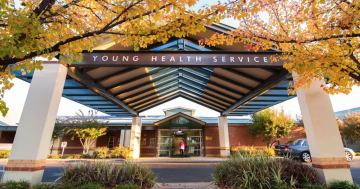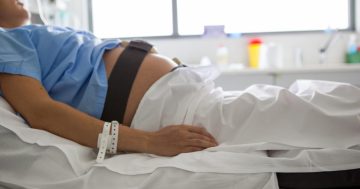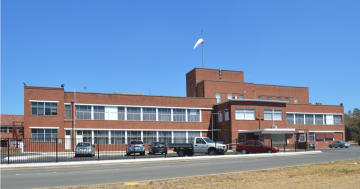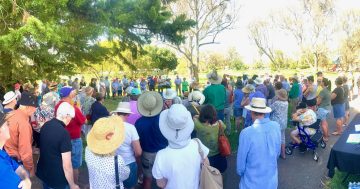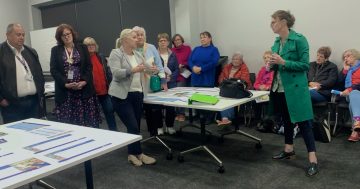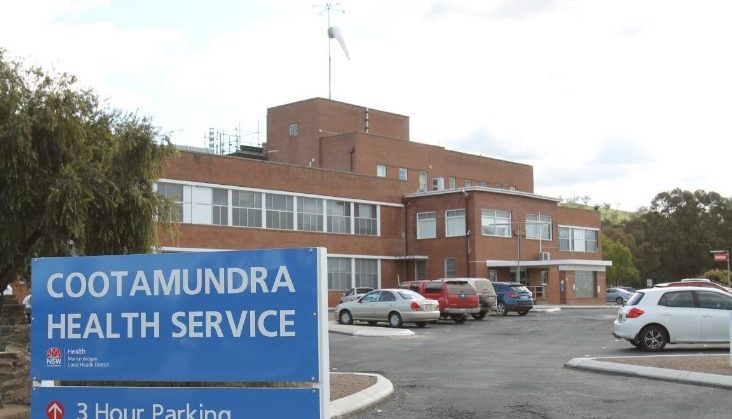
Non-urgent elective surgical patients at Cootamundra Hospital will be sent elsewhere for about eight weeks. Photo: File.
A combination of workforce shortages, furloughed staff and the impact of COVID-19 are causing temporary cutbacks to health services in the Murrumbidgee Local Health District (MLHD).
The MLHD said three of the District’s health facilities were particularly affected by the staffing issues and unplanned leave caused by rising levels of COVID-19 transmission in the community.
From Monday 11 April, overnight emergency department opening times will be temporarily reduced at Batlow and Jerilderie multipurpose services. In addition, around 50 non-urgent elective surgical patients at Cootamundra Hospital will be offered their surgeries at other nearby hospitals.
A spokesperson said the temporary changes at Batlow, Jerilderie and Cootamundra would “support the dedicated staff and ensure the continuation of safe, high-quality healthcare services for all patients while nursing recruitment continues”.
Batlow and Jerilderie’s 24-hour emergency departments will temporarily reduce operational hours to 7 am to 10 pm from Monday 11 April. There are currently an average of three to five presentations a month during these hours at these facilities.
Patients from Batlow requiring ED treatment between the hours of 10 pm and 7 am should present to Tumut Hospital or call 000 for an ambulance.
Patients from Jerilderie requiring ED treatment between the hours of 10 pm and 7 am should present to Finley Hospital or call 000 for an ambulance.
MLHD will continue to work closely with NSW Ambulance to maintain 24/7 access to emergency care and facilitate rapid transfers to the closest specialist care centre when required.
Non-urgent elective surgical patients at Cootamundra Hospital will be offered their surgeries at other nearby hospitals for about eight weeks from 11 April. Patients impacted by these changes will continue to receive their surgery within the required clinical timeframes and will be contacted to discuss alternative hospitals. If required, financial assistance and support can be offered with transport and accommodation.
A spokesperson said MLHD intended to restore services as soon as possible.
“The temporary service changes are in place to ensure wellbeing of our existing staff while allowing for new staff to be trained, upskilled and supported,” the spokesperson said.
“Regional Australia is experiencing significant workforce shortages and MLHD is no exception. We have established a critical vacancy taskforce to work on short and medium-term solutions to boost workforce capacity.
“MLHD offers a number of incentives to attract staff, including relocation payments, interim accommodation and education and career pathways. Short-term contracts are also offered to people who would like to ‘come and try’ working in the rural sector.
“Several agency staff have recently taken permanent contracts after completing placements at our facilities and 54 new graduate registered nurses commenced in February across MLHD. We continue to make every effort, including through the critical vacancy taskforce, to recruit the additional staff we need.
“Our clinicians, staff and managers work hard to ensure that people living in their communities have access to the best clinical care available and experience optimal health outcomes. Our workforce have strong connections to the communities in which they live and we acknowledge their dedication and commitment to delivering exceptional care to the people they serve.
“The wellbeing of our staff is a priority and we have a range of strategies to check in with our staff members, including their wellbeing and workload. This includes change-of-shift team safety huddles, one-to-one conversations with managers, workload committees, work health and safety supports and roving chaplains.
“We thank the community for their support and understanding during this challenging time.”







